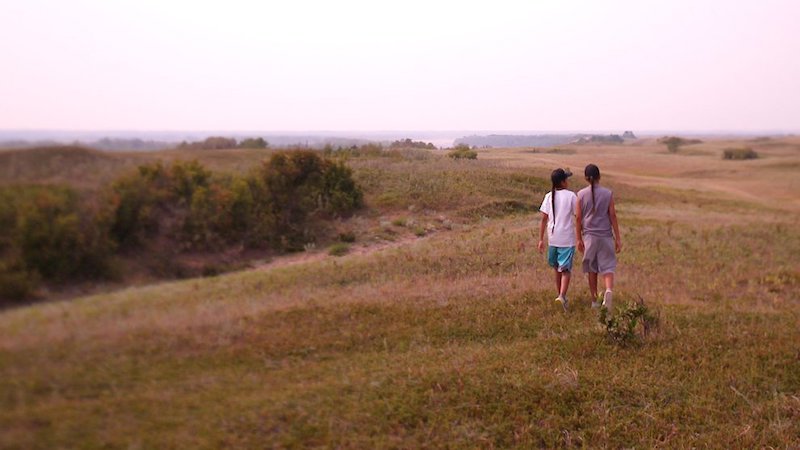nîpawistamâsowin: We Will Stand Up
|
Canada, 2019 (documentary, 99 minutes, colour, Cree / English)
|
|
Also known as
"nîpawistamâsowin : nous nous lèverons"
|

|
| Image: © National Film Board of Canada |
Film Description:
"On August 9, 2016, a young Cree man named Colten Boushie died from a gunshot to the back of his head after entering Gerald Stanley's rural property with his friends. The jury's subsequent acquittal of Stanley captured international attention, raising questions about racism embedded within Canada's legal system and propelling Colten's family to national and international stages in their pursuit of justice. Sensitively directed by Tasha Hubbard, nîpawistamâsowin: We Will Stand Up weaves a profound narrative encompassing the filmmaker's own adoption, the stark history of colonialism on the Prairies, and a vision of a future where Indigenous children can live safely on their homelands."
-- National Film Board of Canada
(source)
|
| Film Credits (partial): |
| Written by: |
Tasha Hubbard |
| Produced by: |
Tasha Hubbard, George Hupka, Jon Montes, Bonnie Thompson, Kathy Avrich-Johnson, David Christensen, Janice Dawe |
| Cinematography: |
George Hupka |
| Animation: |
Justin Stephenson |
| Film Editing: |
Hans Olson |
| Music: |
Jason Burnstick |
| Production Company: |
Downstream Documentary Productions, National Film Board of Canada / Office national du film du Canada |
(sources)
Awards won by nîpawistamâsowin: We Will Stand Up
Notes about nîpawistamâsowin: We Will Stand Up
- Filmed in Saskatchewan, Ottawa, Vancouver, and New York.
- Shown at the Hot Docs Canadian International Documentary Festival in 2019.
(sources)
Quotes about nîpawistamâsowin: We Will Stand Up
"As a scholar who teaches about the impact of colonial violence, [Tasha] Hubbard made the decision to insert her and her family's story into the film [nîpawistamâsowin: We Will Stand Up] to give more context about where she was coming from. She emotionally weaves the impact that Colten's death had on his family, her own family, while echoing the impact it made on the Indigenous community nation-wide. 'I kept looking at my son and nephew in the backseat thinking—where are we going? What is it going to be like for them when they get older?' she explained, 'It just felt so immediate. That's what prompted me to put those feelings that I had into the film.'"
-- Erica Commanda
(source)
"I openly wept many times during the watching of this film [nîpawistamâsowin: We Will Stand Up]. I could feel every word, every image, every video clip that was carefully delivered to me by [Tasha] Hubbard and her film team. I felt strong emotion not only for the story being told, but for the sense of loss I felt in my own Native blood. I felt the loss of ancestral families, the loss of language, the loss of my own relatives that I have never had the honor to meet. But Hubbard comforted me as well as she comforted her son and nephew when she looked at historical records in some museum's archives. 'We're here because the people that came before us loved us so much,' Hubbard says to her son and nephew. The moment was a gift to all Indigenous people, in my view."
-- Vincent Schilling
(source)
Bibliography for nîpawistamâsowin: We Will Stand Up
Articles from Newspapers, Magazines, or News Websites
-
Commanda, Erica. "The Cost of Colten Boushie's Death in Tasha Hubbard's Nîpawistamâsowin: We Will Stand Up." Muskrat Magazine, April 25, 2019.
-
Schilling, Vincent. "'nîpawistamâsowin: We Will Stand Up' is an emotional award-winning film: Colten Boushie documentary tells the story of his death and raises questions about Canadian justice." Review of nîpawistamâsowin: We Will Stand Up. Indian Country Today, September 10, 2019.
Web Sites about nîpawistamâsowin: We Will Stand Up


